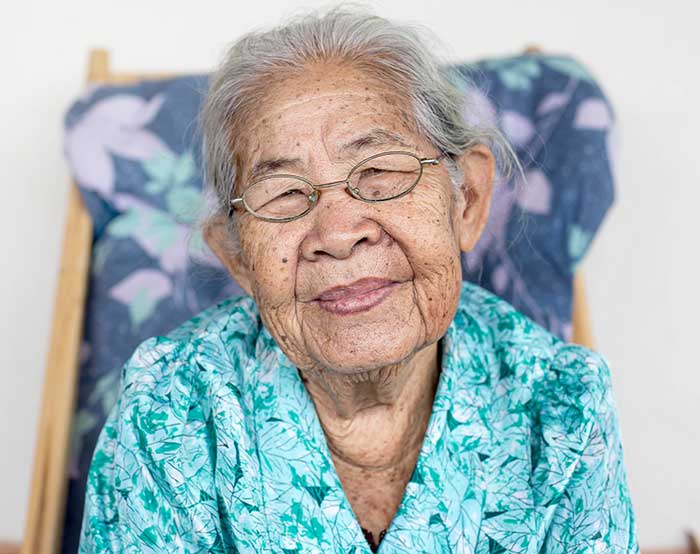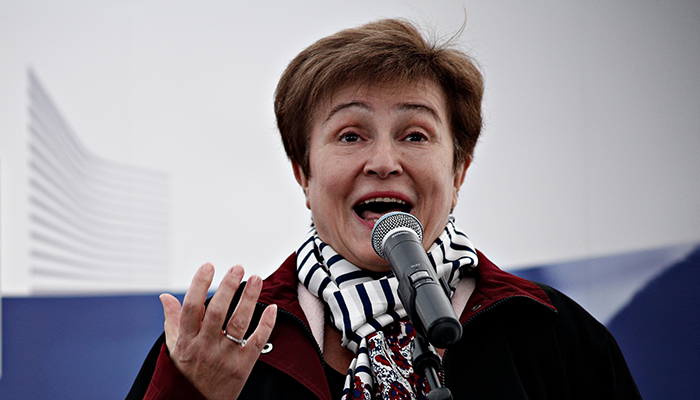web_kristalina-georgieva_8102197387_51be92c934_o.jpg

Kristalina Georgieva, managing director of the IMF. Credit: European Union
Over the past decade, inequality has become one of the most complex and vexing challenges in the global economy.
Inequality of opportunity. Inequality across generations. Inequality between women and men. And, of course, inequality of income and wealth. They are all present in our societies and – unfortunately – in many countries they are growing.
The good news is we have tools to address these issues, provided we have the will to do so. Despite the political difficulty of implementing reforms the payoffs for growth and productivity are worth the effort.
Policies to tackle inequality
Tackling inequality requires a rethink. First, on fiscal policies and progressive taxation.
Progressive taxation is a key component of effective fiscal policy. At the top of the income distribution, our research shows that marginal tax rates can be raised without sacrificing economic growth.
Utilising digital tools in tax collection can also be part of a comprehensive strategy to boost domestic revenue. Reducing corruption can both improve collection and increase trust in government. Most importantly, these strategies can secure the necessary resources to invest in expanding opportunities for communities and individuals that have been falling behind.
“The ability to scale up social spending is essential for achieving the Sustainable Development Goals.”
Gender budgeting is another valuable fiscal tool in the fight to reduce inequality. While many countries recognise the need for gender equality and women’s empowerment, governments can use gender budgeting to structure spending and taxation in ways to advance gender equality even further—increasing women’s participation in the work force and, in turn, boosting growth and stability.
Second, social spending policies are increasingly relevant in tackling inequality. When done right they can play a fundamental role to mitigate income inequality and its detrimental effects on inequality of opportunity and social cohesion.
Education, for example, prepares young people to become productive adults who contribute to society. Healthcare saves lives and can also improve the quality of life. Pension programs can allow the elderly to preserve their dignity in old age.
The ability to scale up social spending is also essential for achieving the Sustainable Development Goals (SDGs). A new IMF study shows that the required scaling-up varies widely across countries.
As an example: in key areas such as health, education, and priority infrastructure, we estimate that emerging market economies will require additional spending every year—reaching about 4 percentage points of GDP in 2030. This compares to 15 percentage points of GDP for the average low-income developing country.
Third, reforms to the structure of the economy could further support efforts to reduce inequality by reducing adjustment costs, minimising regional disparities, and preparing workers to fill a growing number of green jobs.
Active labour market policies can augment workers’ skills and reduce unemployment spells. Think of job search assistance, training programmes, and in some instances, wage insurance.
Facilitating worker mobility across firms, industries, and regions minimises adjustment costs and promotes rapid re-employment. Housing, credit, and infrastructure policies can all support worker mobility.
Geographically targeted policies and investments can complement existing social transfers.
How the IMF supports countries to reduce inequality
Over the past decade, the IMF’s efforts to tackle inequality have become embedded in our surveillance, lending, research, and capacity development work, and that will continue in the decade ahead.
“Changing demographics will push issues of fiscal sustainability to the forefront of the discussion on social spending, including health and pension spending.”
A cornerstone of our approach to issues of economic inclusion is our social spending strategy.
Our engagement with countries begins from the premise that social spending needs to be adequate, yet also efficient and sustainably financed. These are not just yardsticks. They are guiding principles underpinning our policy advice.
For instance, if social spending is inadequate to achieve the SDGs or to protect a significant share of poor and vulnerable households, then it needs to be increased.
Similarly, changing demographics will push issues of fiscal sustainability to the forefront of the discussion on social spending, including health and pension spending.
Most importantly, mitigating the adverse effects of adjustment on the poor and vulnerable is now, and will continue to be, an important objective.
web_elderlyjapanese_shutterstock_295902839.jpg

40% of Japan's population will be over 65 by 2050 - the highest share in the world.
Implementation in practice
Recent examples of our engagement on social spending with countries offer valuable lessons:
During the implementation of the IMF-supported program, Egypt more than doubled its coverage of cash transfers, reaching 2.3 million households.
In Ghana, we helped create room in the budget to increase spending on public education – so that Ghana can achieve its goal of universal secondary education.
We have advised Japan on developing options for pension reform, so necessary for its aging society.
Importantly, we recognise that nobody benefits from another glossy report sitting on a shelf. For this reason, we are working to implement our social spending strategy by weaving it into the fabric of our work so our engagement is better tailored to country-specific preferences and circumstances.
Collaboration with partners
Whether it’s tackling inequality, or engaging on social spending, we know that we cannot do it alone.
We envision this as a partnership of international organisations, academics, country authorities, civil society and the private sector working together to enhance social spending policies and lay the groundwork for achieving the SDGs.
For example, I recently met with G7 labour ministers, who have significant expertise on social, employment, and labour issues that can inform our policy advice. And we can in turn help by raising the profile of these issues in the broader economic policy discourse surrounding stability and growth.
Also, international organisations like the World Bank and International Labour Organization have an invaluable knowledge on social spending.
And civil society, academics, think-tanks, and labour unions all offer unique perspectives as well. These perspectives enrich our views, help us to resist any temptation toward groupthink, and enable us to better appreciate country-specifics.
Of course, there is no one-size-fits-all when it comes to social spending. Countries have different preferences, face different challenges, and aspire to different things. But by working together, we are more likely to ask the right questions and in turn to find the right answers.
This article first appeared on the IMF website.














